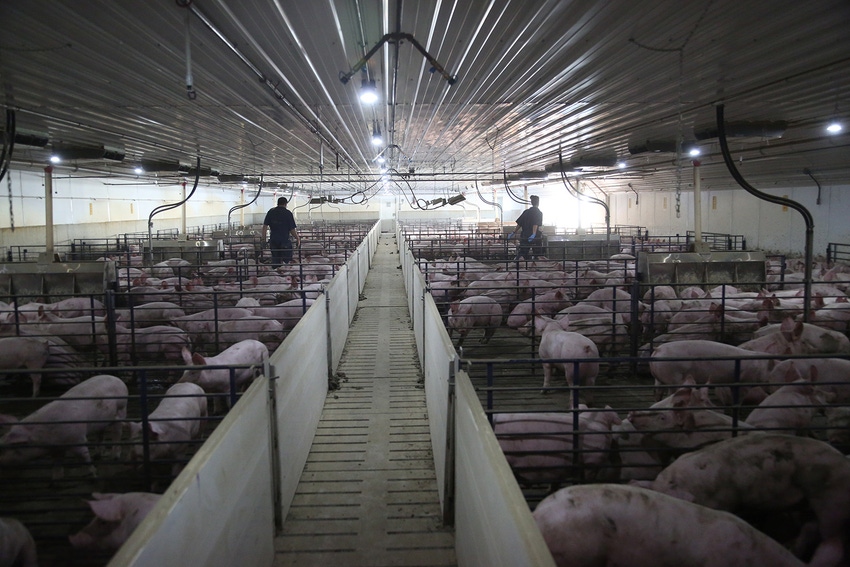Government shutdown or not, hogs still need to receive proper care. American pig farmers know there are no days off.

Well, that’s just dandy. When so much works needs to be done, work that so many rely on getting done, and the government goes ahead and shuts down.
It reminds me of back in the days when bean walking made for a summer of fun. Not that we had that many acres of beans that needed to be weeded, but it was a lot for my dad, brother and I to handle by ourselves, especially when we also had hogs to tend to. We would then turn to other neighborhood youth, and when we still needed help we would turn to hiring crews, which brought interesting exchanges.
“Great, your crew is hired,” my Dad told the crew leader on a Thursday. “You can start tomorrow.”
“Well, tomorrow’s Friday, and we’d rather not start on a Friday,” the crew leader responded.
“How about the next day?” Dad shot back.
“That’s Saturday,” the leader said. “We don’t work on weekends.”
Of course, they didn’t. Because, you know, weeds don’t grow on the weekends; just like pigs don’t need feeding on the weekends and sows don’t farrow on the weekends or holidays. When work needs to be done, it gets done. At least, for those of us outside of the Beltway.
Congress is in session again, but “non-essential” government employees have been given an extended holiday respite. In his Market Preview column yesterday, Steve Meyer with Kerns and Associates outlines some ways that U.S. pork producers will be impacted during this shutdown.
As we all know, U.S. farmers have taken a hit from trade tariffs that have been placed on U.S. products being traded with our foreign customers. The Trump administration realizes that farmers are taking a hit as export markets have either dwindled or disappeared altogether. So not to leave farmers completely high and dry, the USDA created the Market Facilitation Program, allowing agricultural producers to apply for payments to mitigate some of the losses the trade disruptions has caused.
That’s all fine and dandy, but producers needed to apply for the MFP through USDA Farm Service Agency offices, which have now been shuttered as of Dec. 28, due to the shutdown. An original deadline of Jan. 15 was set for producers to apply for the program.
Today it was announced that USDA Secretary Sonny Perdue has extended the deadline due to the FSA office closures.
USDA issued this statement from Perdue regarding the extension:
“President Trump instructed me, as Secretary of Agriculture, to craft a program that would protect farmers from unjustified retaliatory tariffs from foreign nations. As part of that package, the Market Facilitation Program has been making payments directly to farmers who have suffered trade damage. Using existing funds, we were able to keep FSA offices open as long as possible, but unfortunately had to close them when funding ran out. We will therefore extend the application deadline for a period of time equal to the number of business days FSA offices were closed, once the government shutdown ends. Farmers who have already applied for the program and certified their 2018 production have continued to receive payments. Meanwhile, I continue to urge members of Congress to redouble their efforts to pass an appropriations bill that President Trump will sign and end the lapse in funding so that we may again provide full services to our farmers and ranchers.”
This is good news. Even though MFP payments may not be deal-makers or deal-breakers for American pig farmers, every little bit will help. And though the government may be shutdown, the meter continues to run on the losses due to trade disputes.
The length of the government shutdown is dependent on how well Democrats, Republicans and President Trump can get along on negotiations to get the government working again. In the meantime, farmers of all walks will just continue doing what they do best — work.
About the Author(s)
You May Also Like



